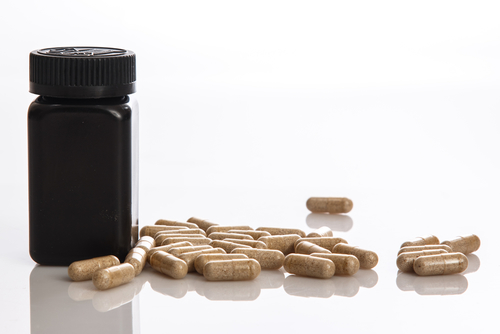Are Testosterone Boosters Bad For You?
Also Known As: test boosters
Short answer
Testosterone boosters can be beneficial for those with hypogonadism, but should be used in moderation as many side effects can result. Those who have normal testosterone levels are better off not using them at all. Most young men (15-30) already have through-the-roof testosterone levels and will not see many benefits from a booster.
Harmful to your health. A few benefits may be associated, but the bad outweighs the good. Moderation is extremely important.
View Full Grading System
Category 'A'
Very healthy and numerous health benefits. Side effects are rare. Things rated an 'A+' are typically necessary for survival (for example, water).
Very healthy and numerous health benefits. A few harmful qualities may be associated, but only under certain circumstances such as an allergic reaction.
Very healthy and numerous health benefits. Harmful qualities may be associated, but aren't usually serious.
It is important to note that even the best things in life can become bad in immoderate amounts. So, although something may be rated an 'A+', overconsumption/overdoing can bring unwanted effects.
Category 'B'
Very beneficial to your health. Things rated a 'B+' may have a few harmful qualities to pay attention to.
Overall beneficial to your health. Things rated a 'B' may have some harmful qualities to pay attention to.
More beneficial to your health than not. However, harmful qualities are most likely associated and shouldn't be overlooked.
The main difference between category 'A' and category 'B' is the harmful qualities typically present in 'B' items. Serious side effects are usually uncommon, but are still possible and should be taken note of.
Category 'C'
Both beneficial and harmful qualities associated. Things rated a 'C+' are typically a bit more on the beneficial side. Still, moderation is important.
A fairly even ratio of beneficial and harmful qualities. Moderation is important. Very general topics that can lean towards both sides of the spectrum will be placed here as well. Rice, for example, can be good or bad depending on the type.
More harmful than beneficial. Side effects are common, especially when consumed/done excessively. Moderation is very important.
Category 'C' usually denotes to both good and bad qualities. When it comes to this category, it is important to keep this word in mind: moderation.
Category 'D'
Harmful to your health. Although benefits may be associated, the bad most likely outweighs the good. Moderation is very important.
Harmful to your health. A few benefits may be associated, but the bad outweighs the good. Moderation is extremely important.
Harmful to your health. Very few, if any, benefits are present. Things in this category should be avoided as much as possible.
Category 'D' is typically for things that are more harmful than beneficial. While consuming/doing something unhealthy once in a blue moon shouldn't hurt, we definitely recommend eliminating 'D' items as a regular part of your routine/diet.
Category 'F'
Category 'F' is for things that fail to bring anything beneficial to the table, and are very harmful to your health. We recommend completely avoiding anything in this category. Long-term side effects of 'F' items are usually very serious.
Category 'N'
'N' stands for neutral. Things placed into this category are generally (a) neither good nor bad for you, or (b) lack the necessary evidence to reach any conclusions.
Long answer
As the name suggests, testosterone boosters are supplements that are taken to increase the production of testosterone in the body. The use of testosterone boosters in the US has been on the rise in the last few years especially among bodybuilders to accelerate muscle growth, and men with a condition called hypogonadism, characterized by below-normal testosterone levels.
Testosterone boosters are known to be very efficient in meeting the goals of users but like everything good, there exists the possibility of harm. Acne, especially of the back is one of the most commonly cited side effects. Studies conducted mostly in Europe have indicated a possible correlation between liver and kidney damage and prolonged testosterone booster use. It is also said that they could increase the chances of prostate cancer among men with no testosterone deficiency. Dependency could also result among users hooked to the youthful kick that they get from using these supplements. DHEA, a common testosterone booster ingredient, is known to cause hair loss, nausea, and a raise in blood pressure.
Doctors advise caution when embarking on a testosterone therapy. As is the case with most supplements, moderation is encouraged. If you experience any suspected side effect, it is prudent to stop use and contact a physician. One last thing to keep in mind is many believe that testosterone boosters are safe because the FDA has approved them. False. Products containing compounds that are converted into testosterone are not regulated by the FDA.
This article is intended for men.
Possible short-term side effects
- headaches
-
aggression
-
irritability
-
anxiety
-
nausea
Possible long-term side effects
- increased blood pressure
-
hair loss
-
prostate cancer
-
acne on the back (bacne)
-
heart attack
-
dependency
-
liver damage
-
kidney damage
Ingredients to be aware of
Benefits
Healthier alternatives
- testosterone boosting foods:
-
shrimp
-
pumpkin seeds
-
coconut
-
ricotta cheese
Please turn your Ad Blocker off to see this content. Thank you!
Thank you for your feedback!
Written by Brendan Quigley
Published on: 12-28-2015
Last updated: 12-10-2016
Thank you for your feedback!
Written by Brendan Quigley
Published on: 12-28-2015
Last updated: 12-10-2016

 Approved by
Approved by 















